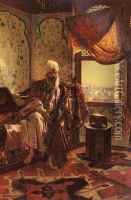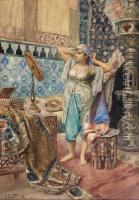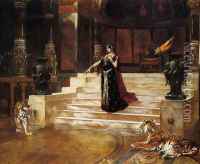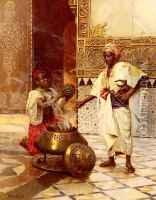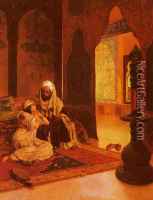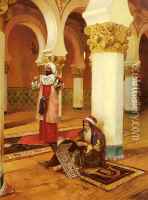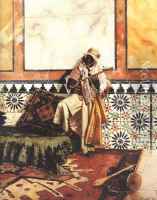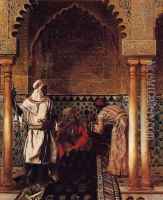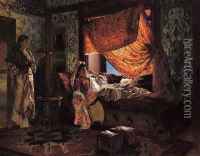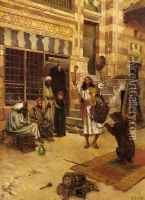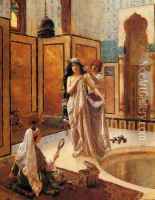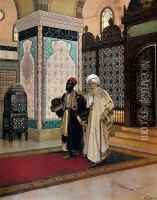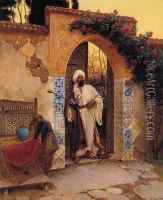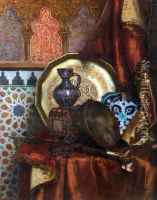Rudolph Ernst Paintings
Rudolf Ernst was an Austrian-born painter, noted for his Orientalist themes. He was born on February 14, 1854, in Vienna, Austria. Ernst developed an interest in art at a young age and began his artistic training at the Academy of Fine Arts Vienna. He continued his education in Rome and Paris, where he was influenced by the Orientalist movement, which was popular among European artists in the late 19th century.
Orientalism in art refers to the depiction of aspects of Middle Eastern, South Asian, and East Asian cultures by artists from the West. It was a trend that coincided with European colonial expansion and often romanticized or exoticized Eastern cultures. Ernst was particularly captivated by the architecture, costumes, and cultures of the Near East and North Africa.
After settling in Paris, Ernst traveled extensively throughout Morocco, Tunisia, Egypt, and Turkey, which deeply influenced his work. His paintings often featured scenes from daily life, marketplaces, harems, and architectural interiors, richly detailed and vibrant with color. He was skilled in portraying the textures of fabrics, the intricate patterns of tiles, and the interplay of light and shadow.
Ernst's work was well-received, and he participated in various exhibitions including the Paris Salon, where he garnered attention and acclaim. His paintings were sought after by collectors and continue to be appreciated for their technical skill and the window they provide into a fantasized vision of the East.
Ernst is also known for his attention to detail, particularly in his depictions of ornamental objects and the use of perspective to create depth in his scenes. His works are characterized by a meticulous and refined brushwork, and he was skilled in both oil painting and watercolor.
Throughout his career, Ernst remained fascinated with the East, and his oeuvre is a testament to the enduring appeal of Orientalist art. He continued to paint until his death on November 4, 1932, in Fontenay-aux-Roses, near Paris, France. Today, Rudolf Ernst is recognized for his contribution to the Orientalist genre and his works are held in numerous private collections and museums around the world.
